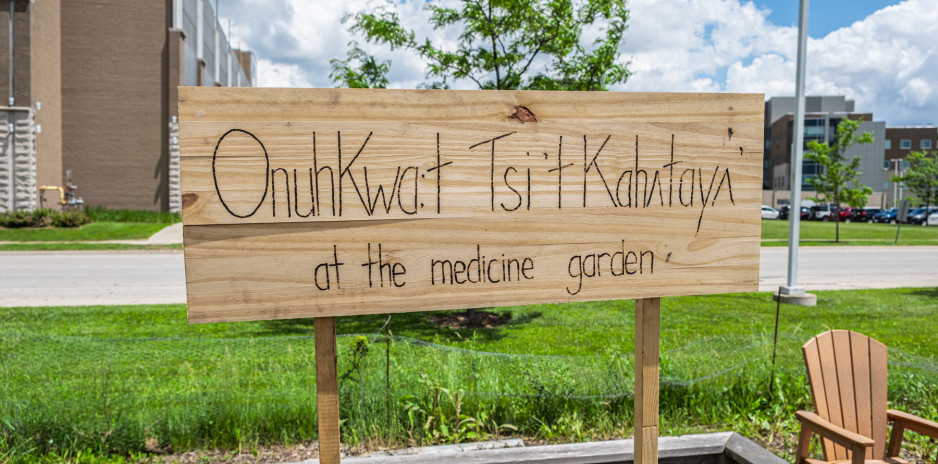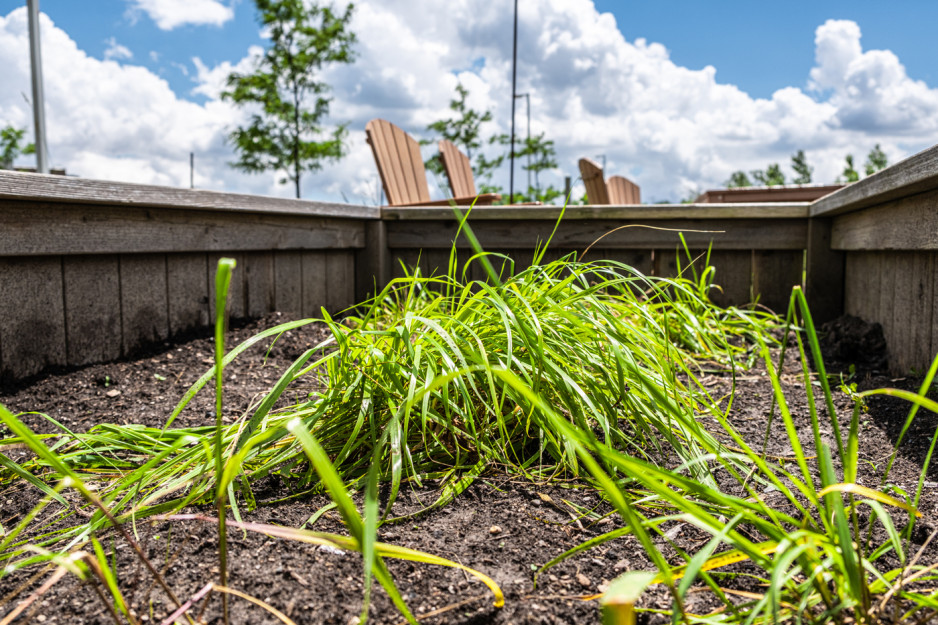Healing through growing
St. Joseph’s Health Care London is growing medicine. As part of an on-site garden, traditional and sacred Indigenous medicines will be nurtured alongside fresh herbs and vegetables- the third summer for this innovative garden on the grounds of St. Joseph’s Parkwood Institute.
The garden is a key component of St. Joseph’s Nourish Project, led by staff members in Food and Nutrition Services (FNS). The team is one of five across Canada participating in a new, two-year Nourish Anchor Cohort that launched in September 2023. The initiative aims to encourage innovation that can impact climate, equity and community well-being through food in health care. The garden is maintained in partnership with Urban Roots London, a non-profit organization that specializes in using underutilized land for agriculture.
“We are eager to continue reinforcing the link between food and health, while also making meaningful contributions to the overall sustainability of our planet," says Michelle Stranges, St. Joseph’s Nourish Project Lead and process improvement specialist with FNS.
Fresh herbs and vegetables harvested from the garden make their way into the menus and meals of patients and residents. New this year is a partnership with Biigajiiskaan: Indigenous Pathways to Mental Wellness program, to include traditional medicines.
Co-delivered by St. Joseph’s and Atlohsa Family Healing Services, Biigajiiskaan (bee-gaw-jees-gawn) is a referral-based mental wellness program that aims to provide accessible, culturally-safe, specialized care for Indigenous people with serious mental illness, addictions and concurrent disorders. Based at St. Joseph’s Parkwood Institute, Biigajiiskaan combines traditional healing medicine, Indigenous elder-guided care and ceremony with hospital-based health care practices and psychiatric treatment.
With the cultivating of traditional medicines on site, the garden was recently named Onuhkw:t Tsi’tKah^tay^’ (pronounced Ho-new-gwat Geet-Guh-Haw-Die-yah) – an Oneida word provided by an Indigenous knowledge keeper that means “In the Medicine Garden.”
“Considering the abundant nutrients and benefits produced in the garden, and how it serves as medicine for the body, mind and spirit through food, therapy and traditional medicines, the name is truly fitting," says Michelle Stranges. “We look forward to this year’s yield, which includes ceremonial medicinal plants like strawberries, sweetgrass, white sage and tobacco.”
“The teachings and practices that we can share as we work side-by-side to bring medicines from ceremony, to seed, to harvest and back to ceremony, is significant in the healing journey. We are grateful for St. Joseph's community support in building and maintaining this space with us.”
-Chris Hannah, Director of Clinical Care at Atlohsa
Many of the medicinal plants grown in the garden will be used for smudging, a ceremony to purify or cleanse the soul of negative thoughts of a person or place, and for healing purposes.
“We are grateful to participate in the work of this garden and for the ability to support Indigenous peoples who are struggling with mental health challenges and help them connect to the land in this way,” remarks Chris Hannah, Director of Clinical Care at Atlohsa , who collaborated with Michelle and her team.
“The teachings and practices that we can share as we work side-by-side to bring medicines from ceremony, to seed, to harvest and back to ceremony, is significant in the healing journey. We are grateful for St. Joseph's community support in building and maintaining this space with us.”

